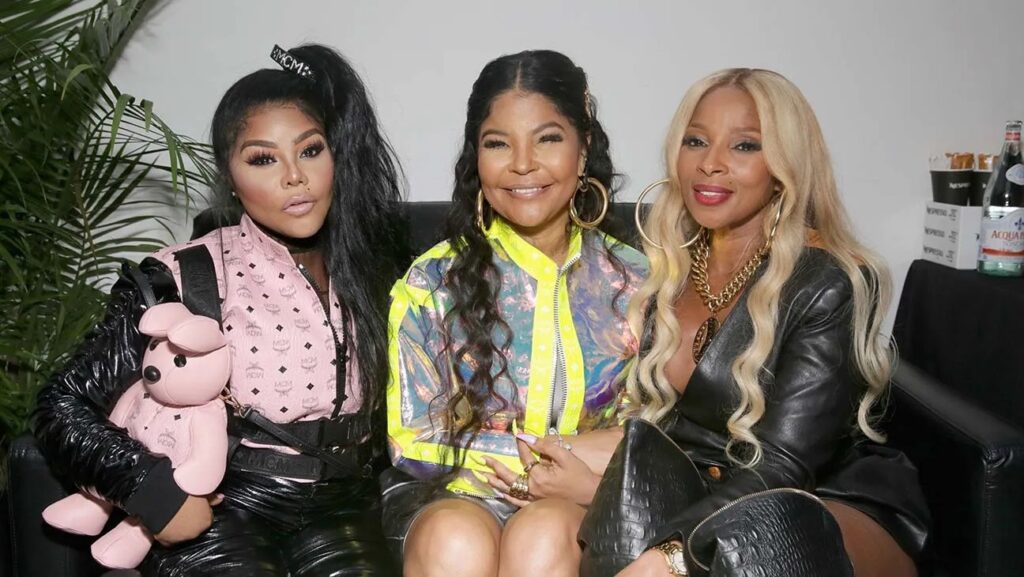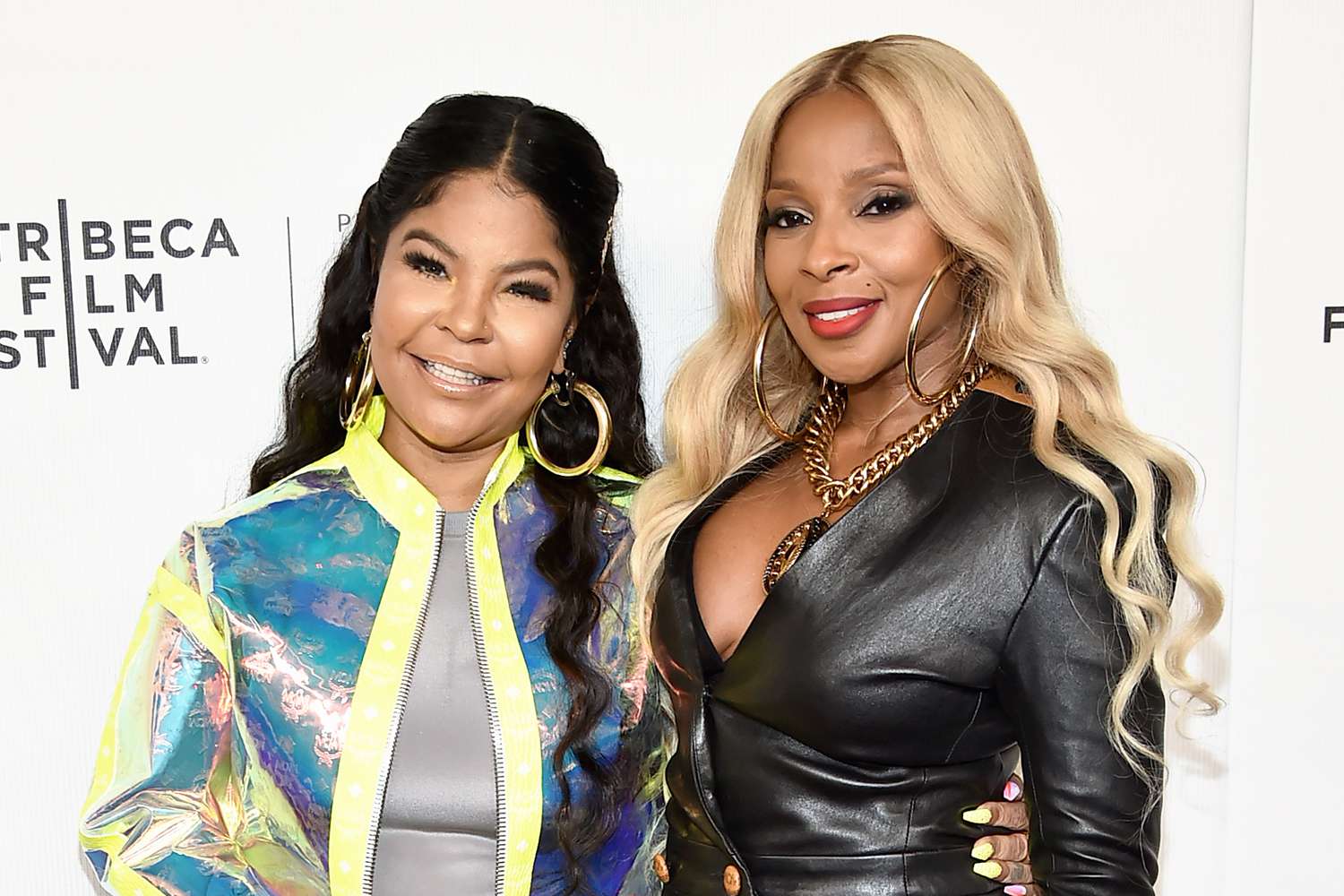In an industry long saturated with power plays, blurred lines between business and personal life, and a legacy of exploitation, the recent $5 million lawsuit filed by Misa Hylton against Mary J. Blige marks more than just a celebrity dispute — it signals a seismic shift in loyalty, financial stability, and the inevitable reckoning of outdated industry practices. The lawsuit names Blige and her production company, Beautiful Life Productions, as central figures in a case involving manipulation, influence, and career sabotage, allegedly targeting rapper Vado — a man caught in the crossfire of once-powerful alliances now unraveling.
As the lawsuit unfolds, it reveals a tangled web of loyalty, alleged retaliation, and financial decline. What once looked like unshakable alliances among music moguls is beginning to crack, and this case might just be a glimpse into an entertainment industry in desperate need of reform.
Chapter 1: The Foundations — Misa, Mary, and Diddy
To understand the significance of this fallout, one must first understand the deep history among the key players.
Misa Hylton, a pioneering stylist and cultural architect, is not only known for shaping the fashion identities of hip-hop royalty — including Lil’ Kim, Missy Elliott, and Mary J. Blige herself — but she’s also the mother of one of Sean “Diddy” Combs’ children. Her imprint on hip-hop’s aesthetic is immeasurable, and her long-standing relationships with artists like Mary were built not only on business but trust and friendship.
Mary J. Blige, the Queen of Hip-Hop Soul, rose to fame in the early ’90s with a raw, emotional style and an authenticity that resonated across generations. At the time, Diddy — then known as Puff Daddy — was instrumental in shaping her sound and public image. He introduced her to Misa Hylton, who became her stylist and helped cement her now-iconic fashion legacy.
That bond between Misa and Mary endured decades — or so it seemed.

Chapter 2: Vado and the Alleged Business Sabotage
Enter Vado — a Harlem rapper once signed to DJ Khaled’s We the Best label, known for appearances on reality TV shows like Marriage Boot Camp. While he had moderate success, he never quite reached mainstream acclaim. Yet, in 2023, Vado’s career saw a resurgence when he signed with MISA Management, Misa Hylton’s talent agency. A new management deal was inked on July 25, 2023, with hopes of rebooting his career.
Just a few months later, Vado also signed a recording deal with Mary J. Blige’s Beautiful Life Productions. According to Misa’s lawsuit, that’s when things took a dramatic turn.
The suit, filed in New York, alleges that Mary used her influence — and her close personal proximity to Vado — to manipulate him into severing ties with Misa’s agency. Key claims include:
- Withholding Vado’s completed album, recorded in mid-2024, to coerce him out of the MISA Management contract.
- Blocking tour opportunities and leveraging access to exclusive industry events to isolate MISA representatives.
- Orchestrating private meetings aboard yachts, at hotels, and other high-profile locations — events where Misa and her team were intentionally excluded.
- Interference by Mary’s boyfriend and head of security, who allegedly tried to sign Vado himself without legal representation.
In short, Misa claims Mary intentionally sabotaged her business to seize control of Vado’s career — or worse, retaliated against her during a time of divided loyalty.
Chapter 3: The Civil War of Loyalty
Sources close to the situation suggest the lawsuit is just the public expression of a much deeper schism: a loyalty war surrounding Diddy. In recent months, Diddy has come under fire from multiple lawsuits and federal investigations — involving allegations of sexual misconduct, workplace abuse, and financial exploitation. Amid this chaos, his long-time circle is reportedly splitting in two.
Mary J. Blige, for better or worse, has remained vocally loyal to Diddy. Some say it’s because she owes him for launching her career. Others suggest there’s more than gratitude at play — possibly shared history, intertwined business dealings, or just stubborn loyalty. Misa, on the other hand, is said to be distancing herself, allegedly to protect her children and salvage her professional legacy.
In this context, the fallout with Vado — a relatively minor figure in terms of fame — becomes symbolic. He represents not just a rapper in the crossfire, but the pressure point where personal grievances, loyalty rifts, and business desperation intersect.
Chapter 4: Financial Desperation or Calculated Strategy?
One of the most striking elements of this legal case is the subtext of financial distress. A $5 million lawsuit doesn’t usually erupt over an emerging rapper unless significant money is at stake — or drying up.
Misa’s agency claims it was entitled to 20% of Vado’s future earnings under their management agreement. If Mary did in fact shelve Vado’s album and block him from touring, that’s not just professional pettiness — it’s economic sabotage.
More troubling is the implication that the well of wealth once associated with Blige, Diddy, and others may be running low. Yacht summers and champagne brunches may be in the rearview. What remains is desperation — for money, for power, for control.
This, according to insiders, is what drives once-loyal friends to courtrooms and private betrayals.
Chapter 5: A Pattern Echoing Diddy’s Shadow
The echoes of Diddy’s business model are loud in this story — and deeply concerning. The alleged use of personal intimacy, isolation tactics, and career gatekeeping to control artists isn’t new. For years, Diddy has been accused of manipulating contracts, exploiting artists, and blurring boundaries between personal relationships and professional obligations.
If Mary J. Blige is now being accused of similar tactics, it poses a troubling question: Did she adopt the same methods that once hurt her? Or was she always part of the system, and only now facing its consequences?
The lawsuit includes claims that Mary threatened to withhold Vado’s entire career unless he left Misa’s management. That level of control — if true — reflects a deeply toxic dynamic that mirrors the very critiques being levied against her mentor and longtime ally, Diddy.

Chapter 6: Why the Industry Must Evolve
The real takeaway here isn’t just about Mary J. Blige, Misa Hylton, or Vado. It’s about how the entertainment industry continues to enable power hoarding, blurred ethics, and retaliation — especially among its most entrenched veterans.
This lawsuit is a case study in what happens when:
- Business is mixed with pleasure (e.g., romantic partners influencing artist contracts).
- Old loyalties outweigh ethics (e.g., staying loyal to Diddy despite his controversies).
- Gatekeeping becomes a weapon (e.g., withholding music and tour access).
The new generation of artists and managers is demanding better — transparency, fairness, and separation between business decisions and emotional manipulation. This lawsuit may not break the industry, but it’s a flashing red light: the old model is failing, and the empire is cracking.
Chapter 7: What Happens Next?
The lawsuit is now moving through the legal system, and a judge will determine whether Mary J. Blige’s alleged actions constitute breach of contract, tortious interference, or emotional distress. But regardless of the outcome in court, the reputational damage may already be done.
If proven true, the case will:
- Damage Mary J. Blige’s image as an empowered, independent artist and entrepreneur.
- Raise questions about the sustainability of her production company.
- Further isolate Diddy and those associated with him during his own legal firestorm.
- Position Misa Hylton as a victim of industry betrayal — and possibly a figure seeking justice not just for herself, but for others like her.
And for Vado? He may become a symbol of what happens when artists are used as pawns in larger power games — another career derailed by those who promised to protect it.
Conclusion
The $5 million lawsuit against Mary J. Blige is about more than lost earnings or a shelved album. It’s a confrontation between former friends, industry icons, and divergent paths in a rapidly changing entertainment landscape. It exposes the fragility of loyalty, the corrosive effects of old-school power dynamics, and the pressing need for accountability.
As the music world watches closely, one thing is clear: the industry may still love a good scandal, but its tolerance for exploitative behavior is wearing thin. And whether through courtroom battles or public reckonings, the truth has a way of catching up — even with royalty.



